Trailblazer Profile: Dr. Lawrence Rouse
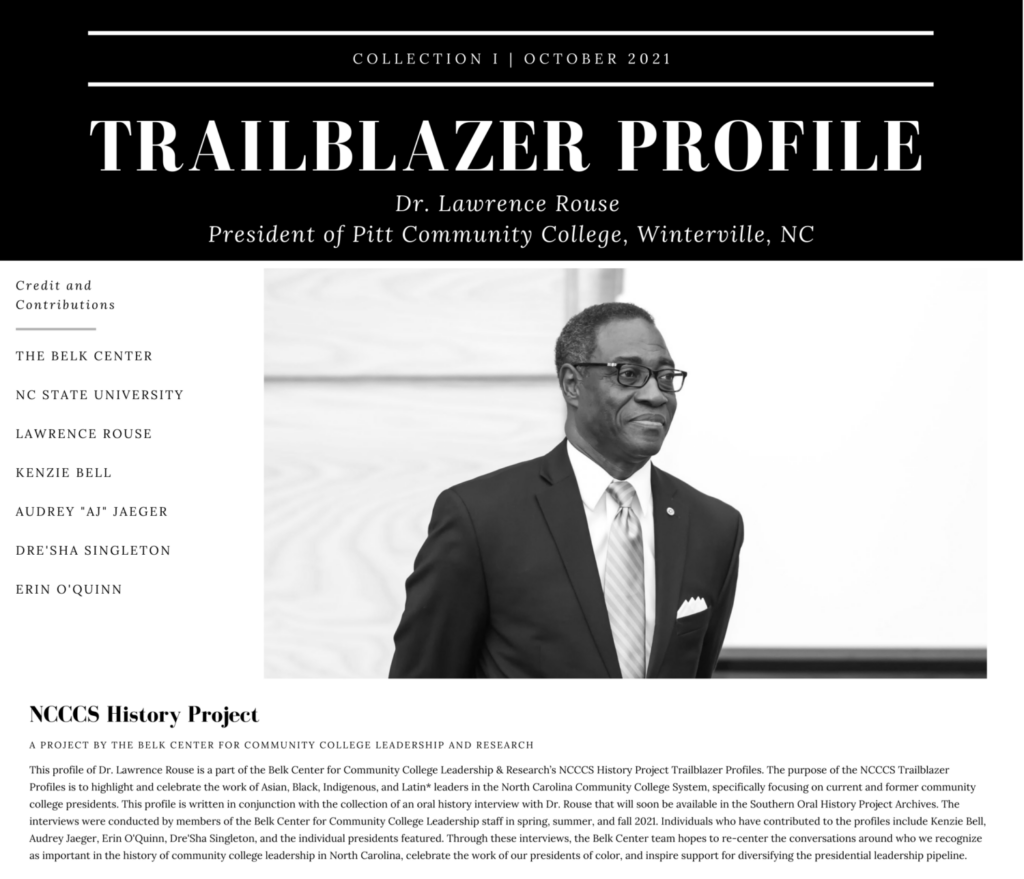
Dr. Lawrence Rouse
When eastern North Carolina comes to mind, one may think of East Carolina University, fish stew or the Great Dismal Swamp. People often come to the Greenville area for football and barbeque. But, nestled just south of this bustling college city, lies the quiet town of Winterville, NC. With a population that nearly reaches 10,000, Winterville feels like any small, rural township, with its two-lane roads and slow stoplights. Because of this environment, you may not realize there is a history-making community college president in your midst.
Dr. Lawrence Rouse, who is leading the charge on student-focused, mentorship-driven, and globally-minded education, is the first African American to serve as president of two North Carolina community colleges: James Sprunt Community College and Pitt Community College. Despite having accomplished such groundbreaking feats, his journey has not been straightforward or free of obstacles. “As an African American, I know that there have been times where I felt that my story was not heard or that I may not have been listened to on my journey to becoming a community college president. So, I always make sure that, as the head of an institution and as a person, that I and my leadership team treat everyone equitably and also with dignity. We cannot just push people aside. We make sure that everybody feels good about who they are, where they’re from, and where they’re headed.”
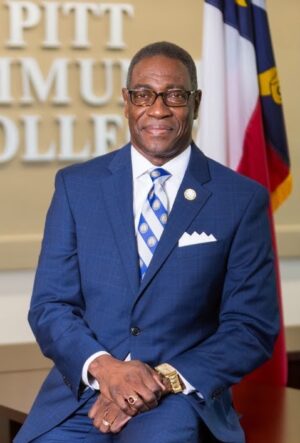
A native of Sumter, South Carolina, Rouse had no intention of becoming a community college president. In fact, he didn’t know it was a potential career option for someone like him, who came from a poor, segregated community. “Growing up, I noticed a lot of social ills: alcoholism, illiteracy, violence and so forth. Seeing this, I thought to myself, ‘how can I help my family and my community?’” Pursuing a career in social work seemed like the best option, at the time. However, nearing the close of his high school experience, Rouse was not considered “college ready” by his high school guidance counselor. “She said to me, ‘Maybe you shouldn’t think about college. Maybe you should just go to work instead.’” Thankfully, Rouse understood the long-term value of higher education, even as a young person, and did not allow this to deter him. “I knew I had to go to college to make my life better. That’s why I want to make that a reality for others.”
Rouse persisted and became a cum laude graduate of Voorhees College, where he earned a Bachelor of Arts degree in sociology. This, he says, is when he first felt the impact of mentorship in his own life, saying, “I had a professor put me in his 8am history class, and I realized it was because he wanted to make sure I was showing up! He wanted me to succeed.” After graduating and working as a social worker, an encounter with a local community college spurred what would become a trailblazing career. “The students who went through the program were empowered. They were empowered to change their lives. They came out of school with skills and a credential. I saw that impact and I knew I wanted to do this work. I was sold on community colleges.”
Throughout his career, Rouse continued his own academic journey while also serving in various higher education administrative roles. He earned a Master of Education from the University of South Carolina in 1992 and a Doctorate of Education from N.C. State University in 1998. When talking about his time at NC State, Rouse said, “My time at N.C. State is one of the highlights in my life because I received a fellowship through the Kellogg Foundation. That fellowship allowed me to pursue a doctorate without having a lot of debt or other financial difficulties. When I got into class, I met individuals such as Dr. Boone, Dr. Vaughn, Dr. Baker and many others who really impressed upon me the vividness of community colleges and the role that they play in our communities. I learned so much. It helped me to prepare for my leadership role in the community college.” His professional background includes work as Dean of Students at Johnston Community College and Associate Vice President for Enrollment Management/Dean of Students at South Carolina’s Central Carolina Technical College (CCTC). He also served as Director of Cooperative Education and Placement Services and as an admissions specialist with CCTC. In 2005, he received his first presidential appointment at James Sprunt Community College and was later named North Carolina Community College System’s President of the Year in 2016 for his work there.
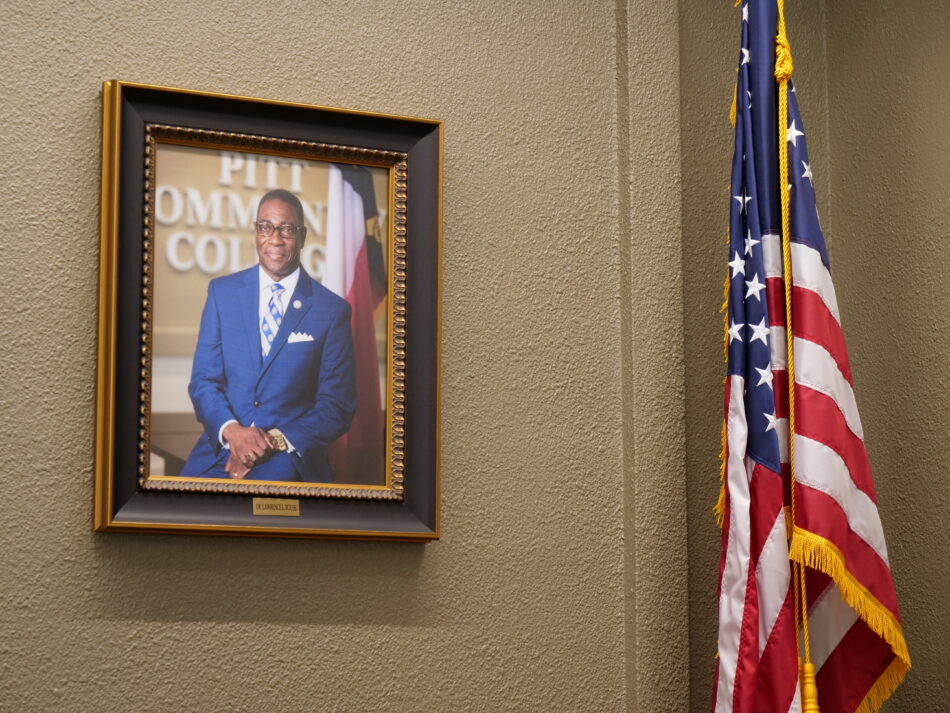

Now, with more than 40 years of experience in higher education administration, Rouse’s idea of what Pitt Community College can offer to its community of learners is clear. “I envision PCC as a premier provider of education and training for business, industry and governmental agencies. My goal is that PCC will provide skilled employees to the workforce by engaging and collaborating with workforce partners to develop relevant and emerging curricula and courses.” Striving to achieve this vision is no easy feat. Pitt is the sixth largest school in the North Carolina Community College system. Serving over 24,000 students per year, Pitt offers standard collegiate curriculum as well as continuing education and workforce development programs. The student body comprises diverse backgrounds: 44% White, 39% Black, 7% Hispanic, 6% unknown, 1% Asian, 1% International and 1% American Indian/Alaska Native. The student body skews slightly towards females, who make up 61% of their students, while 39% are males. With such a wide variety of needs across the student body, Rouse has chosen three main strategies for producing successful student outcomes: student-centered learning, mentorship-driven support, and globally-minded education opportunities.
“I think that Pitt Community College can create the future for many of our students, our graduates as well as for our workforce,” he shares. “My vision for PCC is to ensure that we are student-centric. That means everything we do centers around our students. Because without students, we don’t have a purpose to exist.” Rouse knows that all students are not going to come to Pitt with the same background, preparation, or culture. He shared that, as president, his goal is to be very studious when thinking about how students are coming into the classroom. “I want to make it welcoming and to provide the resources and opportunities that they need in order to be successful. I think that’s what it’s all about.”
Additionally, mentorship for students of all ages is also a priority for Rouse. “I give back to those that are coming along because I’ve had a number of mentors who I certainly feel have shaped my career journey and made me a better person.” Through his fraternity, Phi Beta Sigma, he mentors young boys between the ages of nine and 18. “We pair them up with other African American males to make sure that they get a positive mentorship experience and are encouraged to finish school and go on to college.” At the college level, this mentorship focuses on equity for students of marginalized backgrounds. Rouse recognizes that, historically, there have been systems that have impeded the success of people of color and people of different cultures. His question to himself and his team is: how do we take those systems away, particularly in our own institution? His goal is to remove barriers for students to make sure that Pitt is truly an open door institution. “It all comes back to empowerment for me.” In addition to mentorship opportunities for students, Rouse has been working with African American middle managers within community colleges and local businesses in North Carolina, South Carolina, and Virginia to pass on what he calls “real world university” knowledge. The goal is to share information and skills that students need to know that they may not learn in books or in class, such as resume building, interview skills, and networking., etc. “That’s my way of passing on important knowledge,” says Rouse.
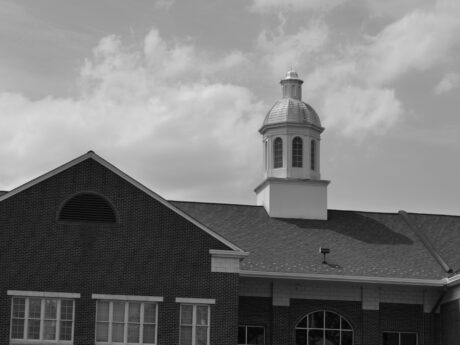
Rouse also emphasizes the importance of maintaining a global perspective at Pitt, saying, “I advocate for internationalizing curricula as well as bringing experiences to students to broaden their understanding of the global society that we live in.” Moreover, he acknowledged the responsibility of institutes of higher education to educate students on the global nature of our world. Indeed, Rouse believes that without knowledge about the world that contextualizes them, the technical skills and specialized knowledge that students obtain wouldn’t be complete. Pitt is increasing its global capacity by ensuring that faculty and staff are given the opportunities to engage in programs that focus on the important increasing globalization aspect of our society. Rouse is intent on preparing students for the world of work that relies on a workforce that is globally and culturally competent. Rouse’s goal-focused global intentions speak to a campus mindset that is fundamentally global, not merely an afterthought.
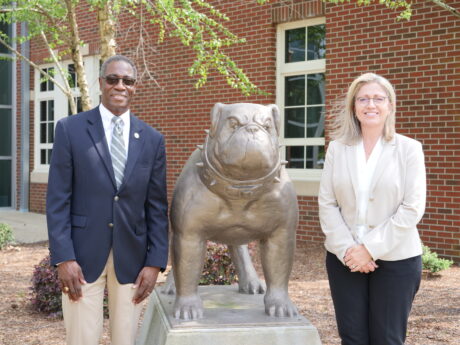
Adversity in the face of progress is universal, but Rouse understands his focus as a community college president. “I think one of the things that we are destined to do and that we want to do here [at Pitt] is to make sure that we provide an environment where all students can be successful. No matter your background, we want to make sure that we are addressing your needs and also that we are working with our local business industries, with our local universities like East Carolina, NC State, and Campbell University. We can be that launchpad for students. My ever-present priority is to make Pitt more responsive to the needs of our students and to the needs of our community.” And when it comes to post-Pitt plans? “That is hopefully a long ways away! I hope to be still that mentor working with individuals, working with institutions to help them to become more equity minded as well as helping individuals to reach their potentials in any way possible.”
Collection I | October 2021